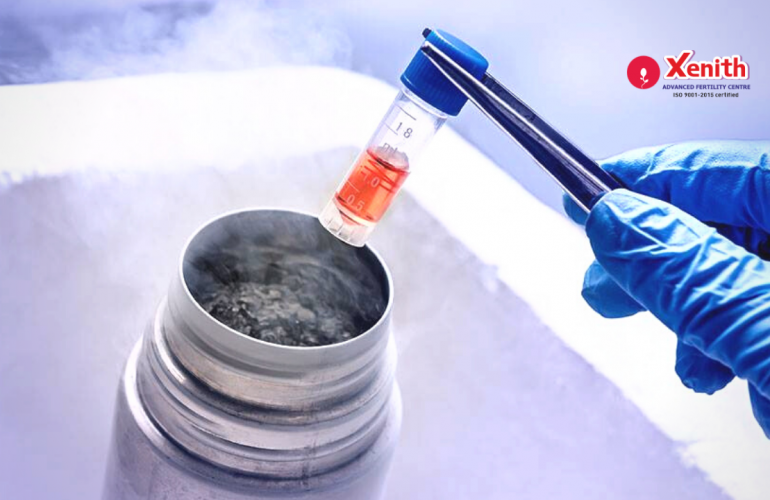Intrauterine Insemination (IUI) is one of the most commonly used techniques for couples who are experiencing difficulty in conceiving a child. It is a relatively easy, non-invasive and inexpensive treatment. For some couples who have not been able to conceive, it can help speed up the time it takes to get pregnant.
This article will discuss why IUI is sometimes necessary, who is eligible for such treatment, how it is conducted, and more importantly, what steps you can take to improve pregnancy success through IUI.

Free Thursday Consultation
Book Your AppointmentSpecial note: The IUI process should be supervised by a reproductive endocrinologist. Applying the term “fertility specialists” randomly without the right credentials and qualifications should be scrutinized. Your greatest chances of success lie under the direct governance of a doctor who is a well-qualified.
Why is IUI necessary?
Conception is often not as easy as it seems! Conception takes place 12 to 24 hours after ovulation, and therefore the timing must be exact. For the timing to be right, it is important to figure out when your partner ovulates.
During natural intercourse, sperms have a hard journey ahead of them. Even if the timing is right, most sperm is killed in the vagina due to the fluids present there. Some sperm will reach the cervix which contains a sticky mucous. Not many sperm make it through the sticky mucous of the cervix and into the uterus. The few that do make it to the uterus need to climb their way up the fallopian tube where conception actually takes place. Some couples may just need a little help. IUI is usually the first line of fertility treatment for couples unable to conceive.
Who is eligible for IUI?
Not everyone is eligible for IUI. The IVF clinic will conduct a series of tests which will include blood tests, an ultrasound, an HSG test for women. Men will need to get a sperm analysis. IUI is usually recommended for couples when:
- Women have abnormalities in their cervical muscles
- Men suffer from ejaculation dysfunction
- Unexplained infertility
- Minimal to moderate Endometriosis
- Mild problems with sperm count and motility
- The woman has had a history of pelvic infections
Certain conditions must be prevalent for the IUI process to work:
- The female must ovulate on her own or with the help of fertility medication
- At least one fallopian needs to be open
- Sperm must be of fairly good quality. IUI works well with normal or subnormal sperm count. If a man has very low sperm count, the doctor may recommend IVF instead of IUI
How is IUI conducted?
The IUI process bypasses the vagina and the cervix by injecting sperm directly into the uterus. This way, more sperm is able to make it to the fallopian tube raising the chances of pregnancy. In fact, the chances of getting pregnant with IUI is much higher than natural intercourse.
IUI is performed at the time of ovulation. The timing needs to be precise, even more, precise than intercourse. Because the timing needs to be so perfect, we usually call the couple to our clinic to determine the time of ovulation. Monitoring ovulation with ultrasound is always done to assess the follicular growth, number of follicles and ovulation time. We do not recommend that couples time their ovulation using an app or temperature charting during the IUI process.
Sperm must be prepared for IUI process
Sperm is separated from seminal fluid in this process which is often called “sperm washing”. Seminal fluid contains many chemicals which can be harmful to a woman if injected into the uterus. The sperm is separated very carefully from the seminal fluid in a special IVF lab. The sperm is then collected in a catheter and ejected inside the uterus.
Steps You Can Take to Improve Pregnancy Success with IUI Treatment
IUI success can depend on a lot of factors such as the age of the woman and fertility medicine used during the treatment. A high majority of couples will likely achieve success after 3 to 4 IUI treatments.
1. Improve your diet
Diet can influence the success of your IUI treatment. You should include a diet that is rich in protein. If you are a vegetarian include lentils (daal), dairy products such as low-fat paneer or curds. Lower your intake of carbohydrates such as rice and potatoes. Replace these with good carbs such as brown rice, whole wheat grain, oatmeal, and beans. Avoid syrupy desserts and junk food! For more on this, read this article.
2. Exercise
Exercise is recommended to improve IUI success. Exercise in moderation. Live an active lifestyle. Avoid sitting in one place for long periods of time. Take a brisk walk every day for at least 30 to 45 minutes.
3. Don’t stress
Many couples are tense and anxious during the IUI process. The clinical tests and atmosphere of an IVF clinic can add to the stress. Here at Xenith, we provide a friendly environment. We want to put you at ease during the entire process. A relaxed, positive approach will achieve better results!
4. Acupuncture may help
Acupuncture treatment is recommended 1 to 3 months prior to the IUI, whenever possible. A study conducted in Israel and reported by the Tennessee Reproductive Health Center showed that acupuncture can help to significantly raise IUI success. Benefits include reduced stress, increased egg quality, improved blood flow to the uterus and ovaries, decreased side effects of medication, and supporting early pregnancy.
5. Take supplements prescribed by the doctor
Take supplements that the doctor has prescribed. Depending on your health, the doctor may prescribe certain supplements that can help support good health. Make sure you take these as prescribed by the doctor. It seems a simple step but so many forget to take their supplements regularly.
6. After the IUI, enjoy sex
Sex after IUI is often recommended to couples. During the act, the uterus contracts and expands helping to push the injected sperm in the uterus to the fallopian tube. It is also a way to bond intimately with your partner, relieving stress and expressing unity. However, in certain cases, your doctor may advise waiting at least 48 hours after the procedure.
To summarize
Years ago, couples who had difficulty conceiving had no options available to them. It was not an easy road for them. Thanks to science and technology, having your own children is now more than a possibility for childless couples. There is much hope so keep a positive, happy outlook!
Xenith Advanced Fertility Clinic has qualified doctors and is the best IVF clinic in Pune. We provide all the treatment couples need under one roof in a comfortable, friendly environment. Schedule a consultation today!




